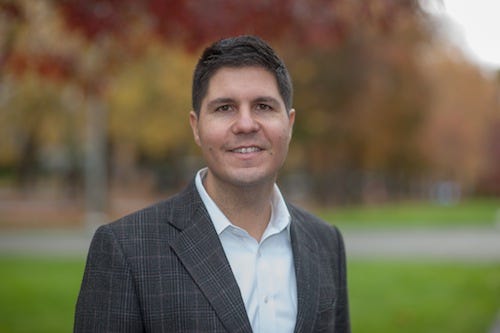How one human rights lawyer is putting multiple D.C. tribal interests on edge
The growing legend of Gabe Galanda. And how he's upsetting the sovereignty status quo.
WASHINGTON – The most dangerous man in D.C. tribal politics today lives almost 3,000 miles away, in Washington state. His name, increasingly well known in Indigenous and mainstream legal circles alike, is Gabe Galanda.
A partner with the Seattle-based Galanda Broadman PLCC firm, founded in 2010, he’s played a highly visible role in making tribal disenrollment a topic to seriously reckon with. That’s a direct result of his ongoing, outspoken legal battles with the Nooksack Indian Tribe over its government’s decision to remove and displace several tribal citizens who the tribe says do not belong.
But the ramifications of Galanda’s fight go far beyond the Nooksack reservation, as he disturbs the well-laid plans of a number of Native lawyers, tribal leaders, and ideological competitors.
A citizen of the Round Valley Indian Tribes, Galanda’s principles are putting multiple powerful tribal interests on edge, due to his fervent support for American Indian people who he argues have been wrongfully disenrolled from their tribes.
Willing to walk a controversial path, he simply does not believe that tribes should have the sovereign right to make citizenship decisions based on politics, gaming per capita profits, or familial tribal disputes. And he argues that there is sufficient federal policy already on the books to outlaw the practice of arbitrary Native American citizenship removal. (Thousands of tribal citizens have been disenrolled to date, and hypothetically anyone who runs afoul of their tribal governments could be removed at any time.)
All of this has made Galanda a modern-day Indigenous human and civil rights hero to people like Cam Foreman, a member of a large tribal family that was disenrolled en masse from the Redding Rancheria tribe in 2003 after inter-tribal gaming-related squabbles.
Foreman, a proud military veteran and grandson of the first chairman of his tribe, spends a portion of his time each day on social media, tweeting and re-tweeting anti-disenrollment articles and analysis, which are appearing more frequently of late.
“Tribal sovereignty should not be used as a shield to hide these Indigenous human rights violations that are happening right here in America,” Foreman wrote in a recent letter to Interior Secretary Deb Haaland, a citizen of the Laguna Pueblo. “It is not a sovereign act to violate any human’s body, liberty, or freedom. As a military veteran, I did not serve my country, state, and community so that the first people of these lands could have their most important rights violated without any legal or political protection.”
Galanda often retweets Foreman’s words – and vice versa – and the two have developed a bond, as Galanda has done with many disenrolled tribal citizens who have for so long felt unheard.
At the same time, Galanda’s advocacy, which is gaining traction not just in the courts, but also from the mainstream press and in academic circles – the places where hearts and minds can be motivated to make change on weighty policy issues – is concurrently receiving some complex traction in D.C. tribal circles, symbolized by reactions to him from the following three archetypes:
Keep reading with a 7-day free trial
Subscribe to Indigenous Wire to keep reading this post and get 7 days of free access to the full post archives.


